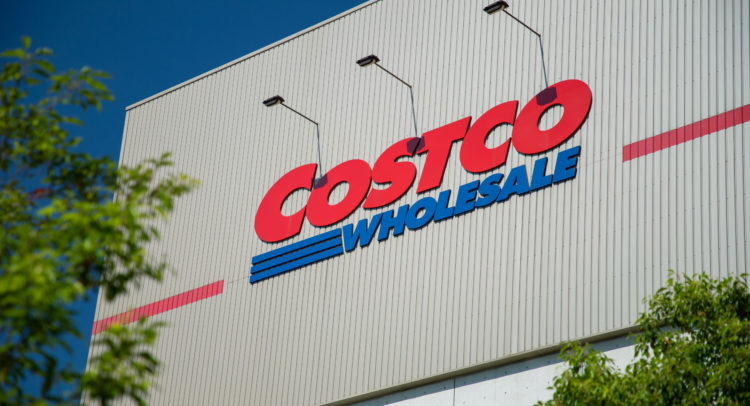Costco’s (NASDAQ:COST) monthly sales continued to trend lower, reflecting weakness in the domestic market. After reporting adjusted comparable sales growth of 7.4% in January, Costco’s sales growth rate slowed to 5% in February. Meanwhile, for March, the growth rate decelerated further to 2.6%. COST stock is down about 1.9% in the after-hours of trade.
Don't Miss out on Research Tools:
- Discover the latest stocks recommended by top Wall Street analysts, all in one place with Analyst Top Stocks
- Make smarter investments with weekly expert stock picks from the Smart Investor Newsletter
Persistently high inflation and a rising interest rate environment are taking a toll on consumer discretionary spending, which in turn is reducing the demand for non-food sales.
While Costco’s comps growth slowed, it compares favorably to its peers. Further, a slowdown in Costco’s sales growth was expected as it faced tough year-over-year comparisons. Also, adverse currency movement poses a challenge for Costco.
Robert W. Baird analyst Peter Benedict stated that Costco’s core comparable sales have slowed due to the weakness in the U.S. market and softness in non-food categories. The analyst expects a downward revision to Q3 results owing to the macro headwinds.
Nonetheless, he sees Costco as better positioned than its peers to navigate the softness in consumer spending and reiterates his Buy recommendation. The analyst recommends accumulating Costco stock on pullbacks. Moreover, his price target of $535 implies 7.6% upside potential.
Costco’s value proposition and high membership renewal rate could continue to support its sales and earnings.
What’s the Prediction for Costco Stock?
Despite the deceleration in its sales growth rate, Wall Street is Bullish about its prospects. COST stock has received 18 Buys and five Holds for a Strong Buy consensus rating. Meanwhile, these analysts’ average price target of $555.64 implies 11.74% upside potential from current levels.




















